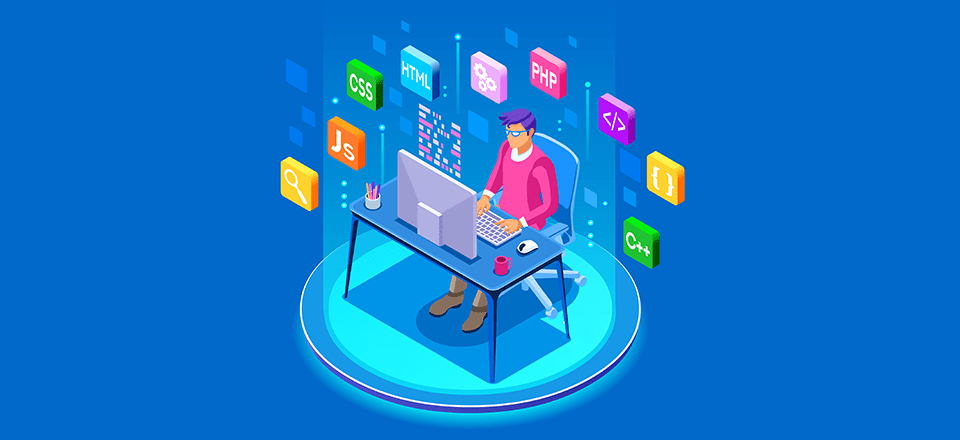The Future of Web Development: Building Websites Using GPT

Introduction:
In the digital era, having a website is no longer just an option but a necessity for individuals and businesses alike. However, the process of building a website has traditionally been complex and time-consuming, requiring coding skills or the use of Building Websites with predefined templates. But what if there was a way to simplify and streamline the website development process using artificial intelligence (AI)? Enter GPT (Generative Pre-trained Transformer), a cutting-edge AI model developed by Open AI. which is poised to revolutionize the way of Build Website Using GPT .
Understanding GPT:
GPT, short for Generative Pre-trained Transformer, is an AI model that has garnered attention for its ability to generate human-like text based on the input it receives. Trained on vast amounts of text data from the internet, GPT can understand and generate contextually relevant content, making it a powerful tool for various applications, including content creation, translation, and now, web development.
Building Websites with GPT:
Traditionally, building a website required expertise in coding languages such as HTML, CSS, and JavaScript, or reliance on website builders with limited customization options. However, GPT opens up new possibilities for simplifying and accelerating the website development process.
Content Generation:
- Content is king in the online world, and GPT can assist in generating high-quality content for websites. Whether it’s writing blog posts, product descriptions, or landing page copy, GPT can generate text that is tailored to the desired tone, style, and purpose of the website. By providing prompts and specifications, developers can leverage GPT to quickly generate engaging and informative content without the need for manual writing.
Design Assistance:
- In addition to content generation, GPT can also assist in designing website layouts and interfaces. By analyzing input data such as user preferences and branding guidelines, GPT can provide recommendations for website design elements, color schemes, typography, and imagery. This helps developers create visually appealing and user-friendly websites that align with the brand identity and aesthetic preferences.
Code Generation:
- Coding is often perceived as a barrier to entry for website development, but GPT can help bridge that gap by generating code snippets for various functionalities. By understanding the desired features and structure of the website, GPT can generate HTML, CSS, and JavaScript code that developers can integrate into their projects. This not only speeds up the development process but also reduces the need for manual coding, especially for routine tasks and basic functionalities.
SEO Optimization:
- Search Engine Optimization (SEO) is crucial for ensuring that a website ranks well in search engine results pages. GPT can assist in optimizing website content for SEO by generating meta tags, title tags, and meta descriptions with relevant keywords and phrases. Additionally, GPT can provide insights and recommendations for improving website performance, loading speed, and mobile responsiveness, all of which contribute to better SEO rankings.
Personalization and Adaptation:
- One of the key advantages of GPT is its ability to personalize content based on user interactions and preferences. By analyzing user data such as browsing history and demographics, GPT can dynamically generate personalized content and recommendations tailored to each visitor. This enhances the user experience and increases engagement, ultimately leading to higher conversion rates and customer satisfaction.
Challenges and Considerations:
While GPT offers promising capabilities for website development, there are also challenges and considerations that developers need to be aware of:
Quality Assurance:
- Despite its advanced capabilities, GPT is not infallible and may produce inaccuracies or errors in generated content. It is essential to conduct thorough quality assurance and validation to ensure the accuracy, relevance, and coherence of the generated content before publishing it on the website.
Ethical and Legal Implications:
- The use of AI in website development raises ethical and legal concerns, including issues related to copyright infringement, plagiarism, bias in content generation, and data privacy. Developers must adhere to ethical guidelines and regulatory requirements when using GPT for website development and ensure transparency and accountability in its implementation.
Integration and Compatibility:
- Integrating GPT into existing website development workflows and platforms may require technical expertise and compatibility considerations. Developers need to assess the integration options, API capabilities, and scalability of GPT solutions to ensure seamless integration with existing tools and technologies.
Cost and Resource Allocation:
- While GPT offers significant benefits Building Websites in terms of efficiency and productivity, it also comes with associated costs and resource requirements. Depending on the scale and complexity of website development projects, the cost of using GPT solutions may vary. Developers need to evaluate the cost-effectiveness and return on investment (ROI) of implementing GPT for website development and allocate resources accordingly.
Conclusion:
The emergence of GPT represents a significant advancement in the field of Build Website Using GPT , offering a transformative approach to building websites using AI technology. By leveraging the capabilities of GPT for content generation, design assistance, code generation, SEO optimization, and personalization, developers can create dynamic, engaging, and user-centric websites more efficiently than ever before. However, it is essential to address the challenges and considerations associated with the use of GPT, including quality assurance, ethical and legal implications, integration and compatibility, and cost and resource allocation. With careful planning, implementation, and continuous refinement. GPT has the potential to reshape the future of web development and empower developers to create impactful online experiences.




